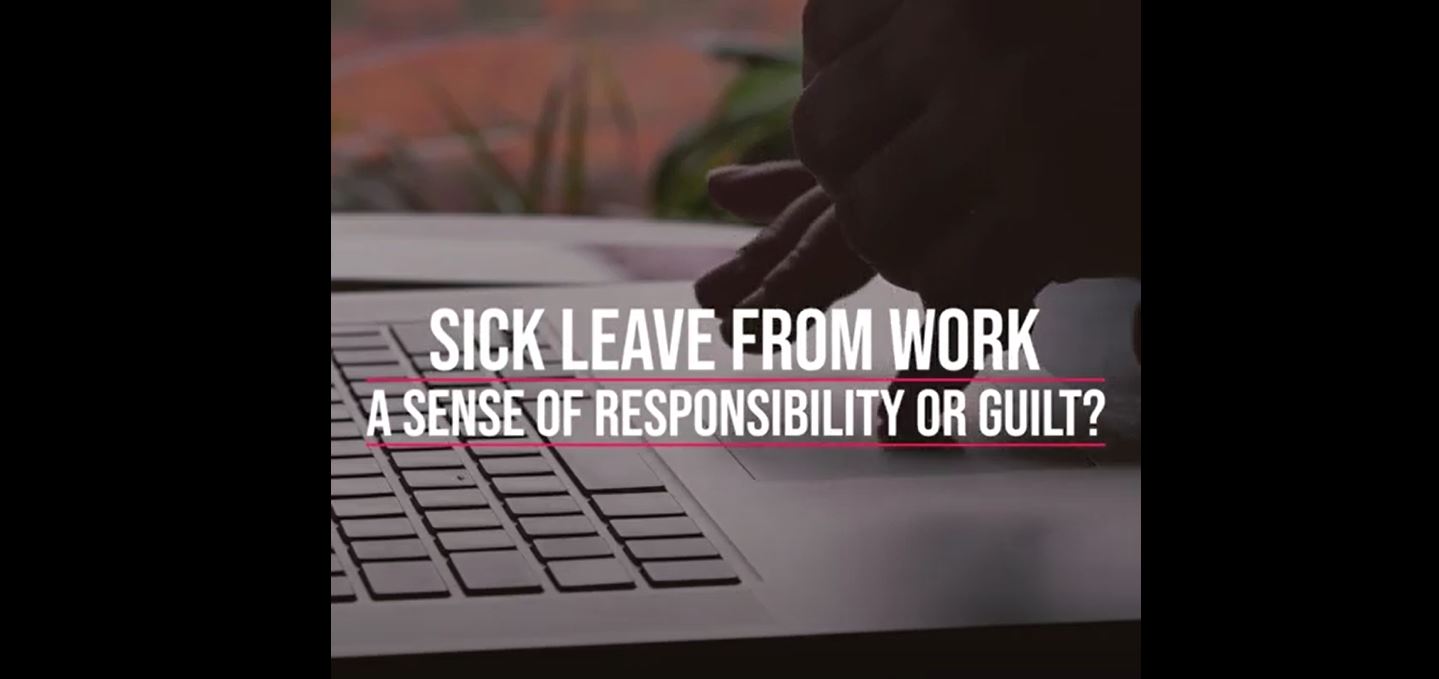After ‘have you tried switching off and on again’, there is no more hackneyed phrase in the offices of the world than ‘I’ve been exhausted for a couple of days with a slight fever, you’ll see how I last until Friday and at the weekend I’ll be sick’. The authorship of this expression is unknown, but misunderstood presenteeism has enjoyed great popularity for some time now because of the pressure that, in many cases, is placed on workers to get the work done and the projects piled up. And that makes them unable to differentiate between commitment and job insecurity when it comes to missing work due to illness.
There is a fine line between getting it right and getting it wrong when it comes to sickness absence. And, without the right tools, professionals too often make the mistake despite having good intentions. However, going to work when sick is a shared mistake. This is equally the responsibility of companies that encourage it by squeezing and pressuring their employees beyond what is laid down in labour agreements, and of employees who take pleasure in demonstrating false strength – in some cases to conceal a high level of insecurity – and believe that they are doing an extra service for the company by going to work while ill or, on many other occasions, returning to work before they are fully recovered.
The pandemic, an unexpected ally
It took a pandemic to bring home the crucial importance of the issue at the heart of this article. Yes, the new normality also has something positive and has led to an exponential increase in self-responsibility and the possibility of teleworking. A slight fever, in the time of Covid-19, is now seen in a different light. And it is seen as a potential threat rather than just a minor nuisance, which has highlighted the fact that we should not come to work sick. Its ease of transmission and, particularly, the severity of its effects have been key to preventing millions of Covid-19 infections in the workplace. And the supposedly selfless employees who, years ago, exposed their colleagues to a stomach virus or a common flu, suddenly became irresponsible for never missing work with bouts of illness.
Meta-studies such as the one published in the Journal of Occupational Health Psychology, based on 61 previous studies with a total of 175,960 participants, warns that this excessive presenteeism does not have positive effects and defines in detail the two different types of employees who are most likely to be present at the office even during episodes of illness.
- The weak and vulnerable, pressured by an economic and professional situation that generates anxiety and stress.
- And the workaholic who finds no stimuli to break his or her dependence on his or her occupation.
Both scenarios have much to take note of regarding whether work should be missed due to illness. For, according to the findings of the study, “working while feeling unwell can aggravate the effects of the initial illness and result in poor attitudes at work. But the possible consequences of being absent can lead to employees going to work sick or returning to work before they are fully recovered,” explains Mariella Miraglia, head of the study.

Managing time according to needs
The term flexible working time is on the agenda of all companies that aspire to be competitive. However, there are still many companies and countries, mostly concentrated in the United States, where autonomous time management, paid holidays and days off are still a pipe dream. Even in the midst of 2021, when there is increasing talk of the detrimental effects of growing and developing a company without taking employees into account. A mistake that, in the long run, requires a much greater effort than that involved in keeping teams motivated.
Carmen Carvajal, Managing Partner of Psicosoft – a Human Resources consultancy, winner of the 2019 Flexible Company award – sums it up in a single sentence: “Happiness is being able to do what you need to do at all times“. Or, as she recently summed up in a statement to Business Insider, “to stop feeling that your personal life is constantly clashing with your work obligations”.
A philosophy shared with Defta, a company dedicated to the manufacture and supply of automotive components and also winner of this award in 2019, “Employees have to be autonomous and freely able to manage their working time, according to their needs“.
That is why both brands allow time management and teleworking for their entire workforce, while advocating for shorter working hours on special dates so that employees can spend more time with their families.
Drawing the line between discomfort, illness and missing work
If you wake up one day feeling like you’ve been run over by a truck, your head will tell you to stay home and opt for sickness absence… Unless you have to finish a report for tomorrow’s presentation, in which case your mind will insist on making one last effort. What to do? Here there is a wide range of variables between the two possibilities. Work from home, delay your schedule to try to get a couple of extra hours of sleep, start at home and finish in the office so you can brainstorm. But medical specialists and HR managers are clear. There are times when it is better to rest.
Raeni Ware, personnel manager and head of team culture at logistics company Sonwil in Buffalo, New York, encourages you to ask yourself a series of questions to help you make the right decision:
- Are you contagious? -A preventive measure that can exacerbate the impact on the company-
- Can you do your job? -If you are unable to carry out the required minimum, when you recover you will have twice as much work to do to check if the work is done correctly-
- Physically you can, but is you mind clear enough?
- If it wasn’t Monday or Friday would you go to work? Looking at the cold statistics, there is a tendency to work before or after the weekend. A circumstance that does not go unnoticed by department heads when determining whether or not the system is being abused.
Health should be prioritised over all other responsibilities
Based on honest answers to these questions about presenteeism, the solution to the dilemma appears to be easier. However, there is still one more factor that can be added to help dispel any doubt: family responsibilities, which should always take precedence over professional responsibilities, allowing for a work-life balance.
In fact, in its mission to strengthen Social Rights as a foundation, the European Commission (EC) made progress in January 2019 on the establishment of a paid leave of “at least” four months for childcare that each parent can take, of which two months will not be transferable between parents and will be paid at a level that will be decided by each Member State. This is a milestone that the EC believes is necessary so that parents have “a real choice as to how they want to combine their work and family life”.
Sources: El Economista, Business Insider, BBC, The Healthy



